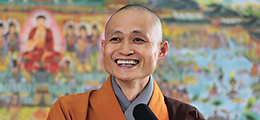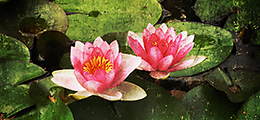
Welcome to the English-language website of the Pure Land school.
Our aim is to introduce to international audiences the teachings and practices of Pure Land Buddhism according to the lineage of Master Shandao (善導大師, 613-681) of Tang Dynasty China.Master Shandao, long revered in East Asia as an incarnation of Amitabha Buddha, is universally acknowledged as the de facto founder of the Pure Land school of Buddhism. Grounding his teachings in the three Pure Land sutras preached by Shakyamuni Buddha, he urged practitioners to aspire to rebirth in the Land of Bliss by reciting the name of Amitabha Buddha exclusively.
more
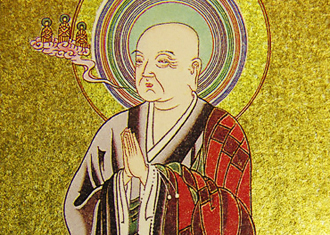
After the Charter, it is necessary to be familiar with the school’s founder, for the former is based on the teachings of the latter.
The founder occupies a preeminent position in the school, unmatched by others. The founder of the Pure Land school was Master Shandao of the Tang Dynasty, widely accepted as an incarnation of Amitabha Buddha. He synthesized and completed the Pure Land teachings and wrote the Five Works in Nine Fascicles, which definitively laid down the thought and practices of the Pure Land tradition.
more
English translation by Householder Jingtu

A “charter” outlines the principles characteristic of a Dharma school and sets forth guidelines for practice by its adherents.
The Pure Land Charter was drafted by Dharma Master Huijing. It serves as a manifesto for the Pure Land school, summarizing its evolution over more than a millennium, up to the present day. The Charter consists of 18 clauses defining the essential elements of the school and clearly lays out its framework.
The Pure Land Charter was drafted by Dharma Master Huijing. It serves as a manifesto for the Pure Land school, summarizing its evolution over more than a millennium, up to the present day. The Charter consists of 18 clauses defining the essential elements of the school and clearly lays out its framework.more
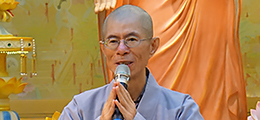
Dharma Master Huijing
Time flies, and we once again welcome the auspicious Year of the Horse. In Chinese culture, the horse symbolizes vitality, courage, and forward momentum. We wish one another "success as swift as a galloping horse" and the "spirit of the dragon-steed" for good health.......
more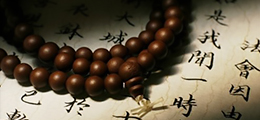
Amitabha Buddha is Like a Huge Mountain
In 2020, to celebrate Amitabha Buddha’s birthday, the Shandao Temple of the Pure Land Buddhist Association in Pingtung, Taiwan, held a 7-day Buddha recitation ceremony that concluded on the Buddha's birthday, November 17th of the lunar calendar. During this period, the temple organized morning sessions for chanting and afternoon sessions where venerable masters took turns teaching the principles of Pure Land Buddhism.
more
